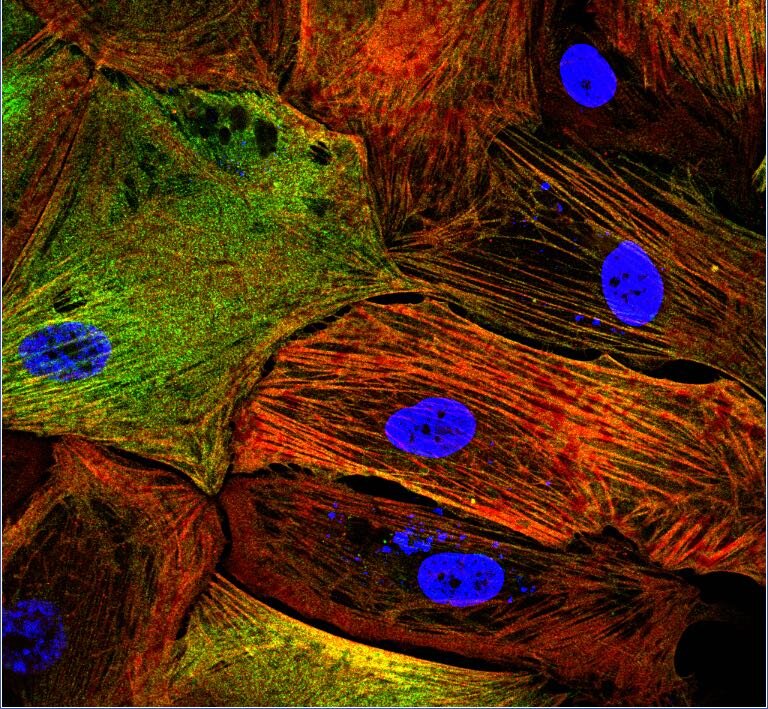
Overview
Direct cardiac reprogramming has been achieved both in vitro and in vivo by ectopic delivery of indicated genes.
Heart disease is the leading cause of death in the United States and worldwide. Due to the limited regenerative capacity of adult cardiomyocytes, loss of cardiomyocytes results in the permanent damage of heart function following heart disease, such as myocardial infarction. Recently, direct reprogramming of non-myocytes to cardiomyocytes has been achieved by ectopic expression of cardiac-enriched transcription factors. This approach holds great potential as a therapeutic strategy to replenish cardiomyocyte loss in injured hearts and a means of in situ cardiac regeneration. However, there are significant hurdles that need to be overcome for this approach to be a viable therapy for human patients.
Our lab takes advantage of a collection of genetic and genomic tools, and the first-hand experience with cellular reprogramming to elucidate the molecular and cellular mechanisms underlying cardiac reprogramming in human cells and apply the knowledge to improve the efficiency and clinical applicability of reprogramming. Recently, the ongoing projects are focused on:
Defining the dynamic gene regulatory network mediated by reprogramming factors;
Revealing epigenetic remodeling during human reprogramming;
Optimizing the strategy of reprogramming.
These studies will provide important new insights into molecular mechanisms underlying human cardiac reprogramming and pave the way toward cardiac regeneration for heart repair.

“The more I learn, the more I realize how much I don't know.”
―Albert Einstein
